The 9/11 Museum Is an Atrocity Exhibition
These New Yorkers want to transform the September 11 museum, but can it be anything other than a purveyor of War on Terror propaganda?
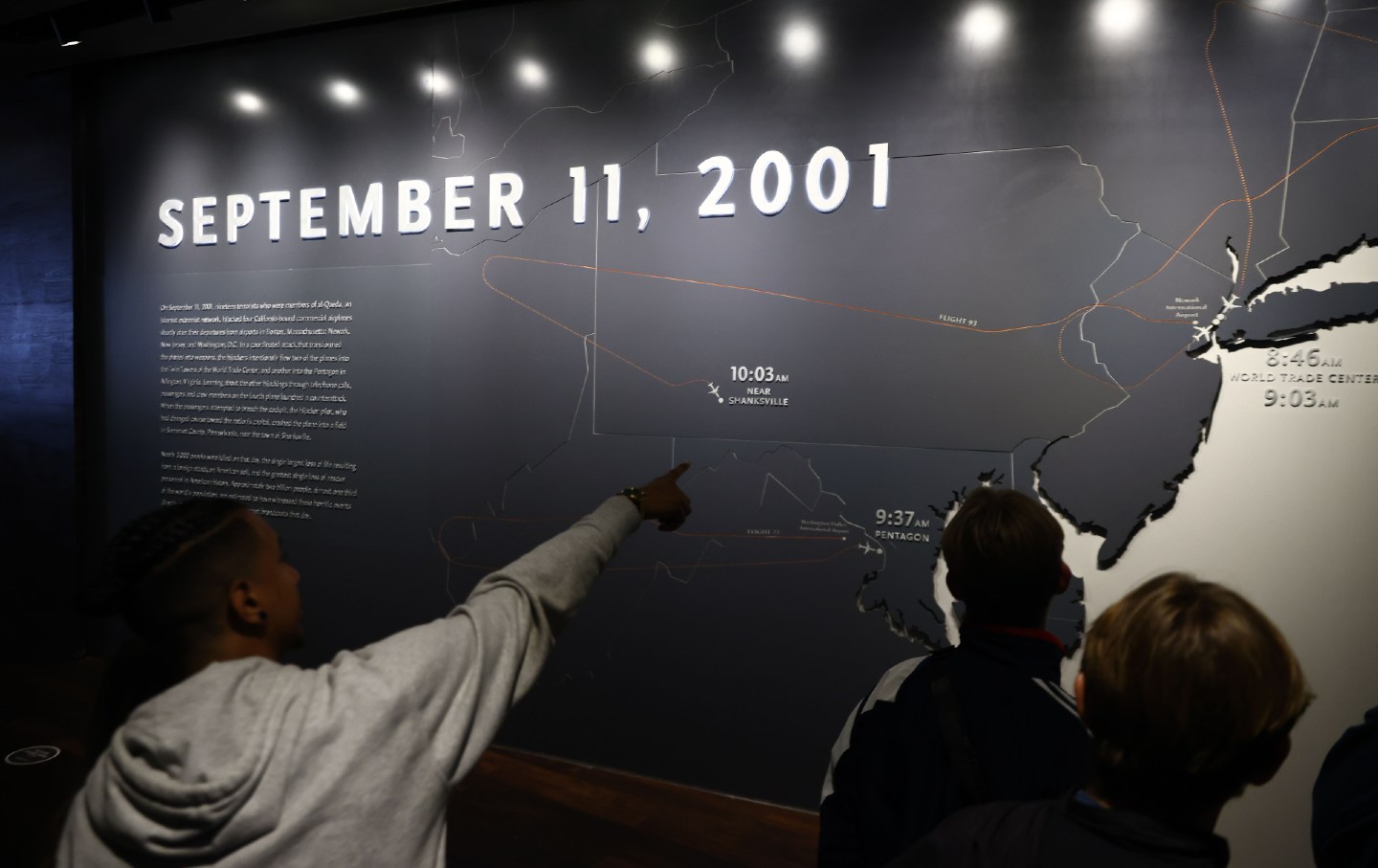
No New Yorker in their right mind—especially one who vividly remembers the horror of 9/11—would want to visit the National September 11 Memorial & Museum. But on a cloudless day shortly after the 22nd anniversary of the attacks, I took leave of my senses and descended into trauma, hate, and fear.
It was a literal descent: The museum is an escalator ride beneath what was Ground Zero, the wreckage of the World Trade Center in Lower Manhattan. My Virgils for this endeavor were two New Yorkers who are trying to push the museum to become something more than an atrocity exhibition. There was Steven Rosenbaum, a documentarian whose donation of the 500-hour CameraPlanet 9/11 archive made him and his wife, Pamela Yoder, the largest contributors of video to the museum; and Debbie Almontaser, the CEO of the diversity, equity, and inclusion company Bridging Cultures Group, who was a target of 9/11-era hysteria that forced her out of her job as a public school principal because of her Muslim background.
In 2023, Rosenbaum, Almontaser, and several others formed the 9/11 Museum Community Advisory Council. The group’s aim, according to an open letter to the museum’s president and CEO, Elizabeth Hillman, is to “deepen and broaden the Museum’s purview, its inclusivity and diversity, and to increase the Museum’s transparency and its responsiveness to community feedback.” The organization met with Hillman on July 24, but the museum has not responded to the group’s request for quarterly meetings about content and programming.
The council’s goal is admirable. But—and this is my perspective, not that of my interlocutors—it was difficult to emerge from the exhibitions without feeling skeptical that the museum is interested in being anything other than a purveyor of War on Terror propaganda.
The dimly lit main exhibition starts history at 8:46 am on September 11, 2001, the moment that American Airlines Flight 11 hit the North Tower—not, say, in 1945, when Franklin Roosevelt met with Ibn Saud aboard the USS Quincy and made a pact that traded repression for oil. Speakers play snippets of radio broadcasts that give way to voicemails of passengers on the doomed planes calling their loved ones. It immediately called to mind the opening of Kathryn Bigelow’s CIA-assisted movie Zero Dark Thirty, which cuts from audio excerpts of people dying on 9/11 to agency interrogators torturing a captive at a black site.
If the exhibition dealt at all with the CIA’s post-9/11 torture programs, I missed it in the dark. Nor could I find the surveillance panopticon that US intelligence agencies created after the attacks; the US drone strikes and raids in Yemen, Somalia, Libya, Syria, Pakistan, and elsewhere; or the Islamophobic backlash carried out by police. Obligatory references to the invasions and occupations of Afghanistan and Iraq neglect to mention that those wars killed at least half a million people. The museum’s aperture is opened just enough to show the agony of a single horrific day, divorced not only from history but from the intensified militarism that followed.
Amid the collections of World Trade Center debris, battered fire trucks, and rusted emergency response tools, there is one exception to the museum’s narrow focus. It is a seven-minute film, The Rise of Al Qaeda, which has outlasted the controversy that erupted when the museum opened in 2014. The film’s emphasis on the terror network’s desire for governments “ruling in accordance with Islamic law” and its minimization of US sponsorship of authoritarian regimes in the Middle East make Al Qaeda seem like the apotheosis of Islam, even with throwaway lines about it representing “fringe elements.” And the implication that 9/11 was a salvo in a clash of civilizations is reinforced by the museum’s display of the so-called Ground Zero cross, a 17-foot girder sheared on 9/11 into the shape of a crucifix and seen as a sign that God was with America.
A shaken Almontaser worried that the museum—and the film in particular—would endanger any visitor who looked Muslim. “It creates a lot of ingrained messages that Islam and Muslims continue to be the enemy,” she said.
Rosenbaum knows the museum’s founders and believes that everyone has good intentions. But, he said, they need to “take out 25 percent” of the displayed artifacts, “turn the lights on,” diversify the voices they highlight, and address the world that made 9/11 and that 9/11 made. “Let’s begin the process of now thinking about 9/11 as historians,” he continued. “That requires access to archives, and research, and theories, and disagreements, and all this messy stuff that’s super-healthy if you live in a democracy.”
Perhaps the museum’s leadership wants that. “The 9/11 Memorial & Museum proactively seeks opinion on content and programming and regularly meets with a wide variety of stakeholders who want to offer constructive input and will continue to do so in the future,” the museum’s director of external affairs, Lee S. Cochran, told The Nation, although she stopped short of committing to the requested quarterly meetings.
To its credit, the museum’s supplementary programming explores the impact of 9/11 on undocumented immigrants and on growing up amid its legacy. But the concerns of the advisory council center on the museum’s displayed materials, not its supplementary ones. And what’s on display preserves the notion of American innocence by carving the attacks out from history. It focuses on the violence America suffered and obscures the violence America inflicts. It discourages critical thinking and operates in the dark.
I also spoke with Elizabeth Miller, a colleague of Almontaser and Rosenbaum on the council’s steering committee. Miller, whose firefighter father died on 9/11 when she was 6 years old, worked as a research coordinator at the museum until the Covid layoffs in 2020. “My big belief is that 9/11 didn’t end on 9/11,” she said. “We have seen the policies, the wars, the abuse of human rights following 9/11, specifically with Guantánamo Bay.” But at the museum, Miller continued, “there’s just very little attention to it.”
Time is running out to have your gift matched
In this time of unrelenting, often unprecedented cruelty and lawlessness, I’m grateful for Nation readers like you.
So many of you have taken to the streets, organized in your neighborhood and with your union, and showed up at the ballot box to vote for progressive candidates. You’re proving that it is possible—to paraphrase the legendary Patti Smith—to redeem the work of the fools running our government.
And as we head into 2026, I promise that The Nation will fight like never before for justice, humanity, and dignity in these United States.
At a time when most news organizations are either cutting budgets or cozying up to Trump by bringing in right-wing propagandists, The Nation’s writers, editors, copy editors, fact-checkers, and illustrators confront head-on the administration’s deadly abuses of power, blatant corruption, and deconstruction of both government and civil society.
We couldn’t do this crucial work without you.
Through the end of the year, a generous donor is matching all donations to The Nation’s independent journalism up to $75,000. But the end of the year is now only days away.
Time is running out to have your gift doubled. Don’t wait—donate now to ensure that our newsroom has the full $150,000 to start the new year.
Another world really is possible. Together, we can and will win it!
Love and Solidarity,
John Nichols
Executive Editor, The Nation
More from The Nation
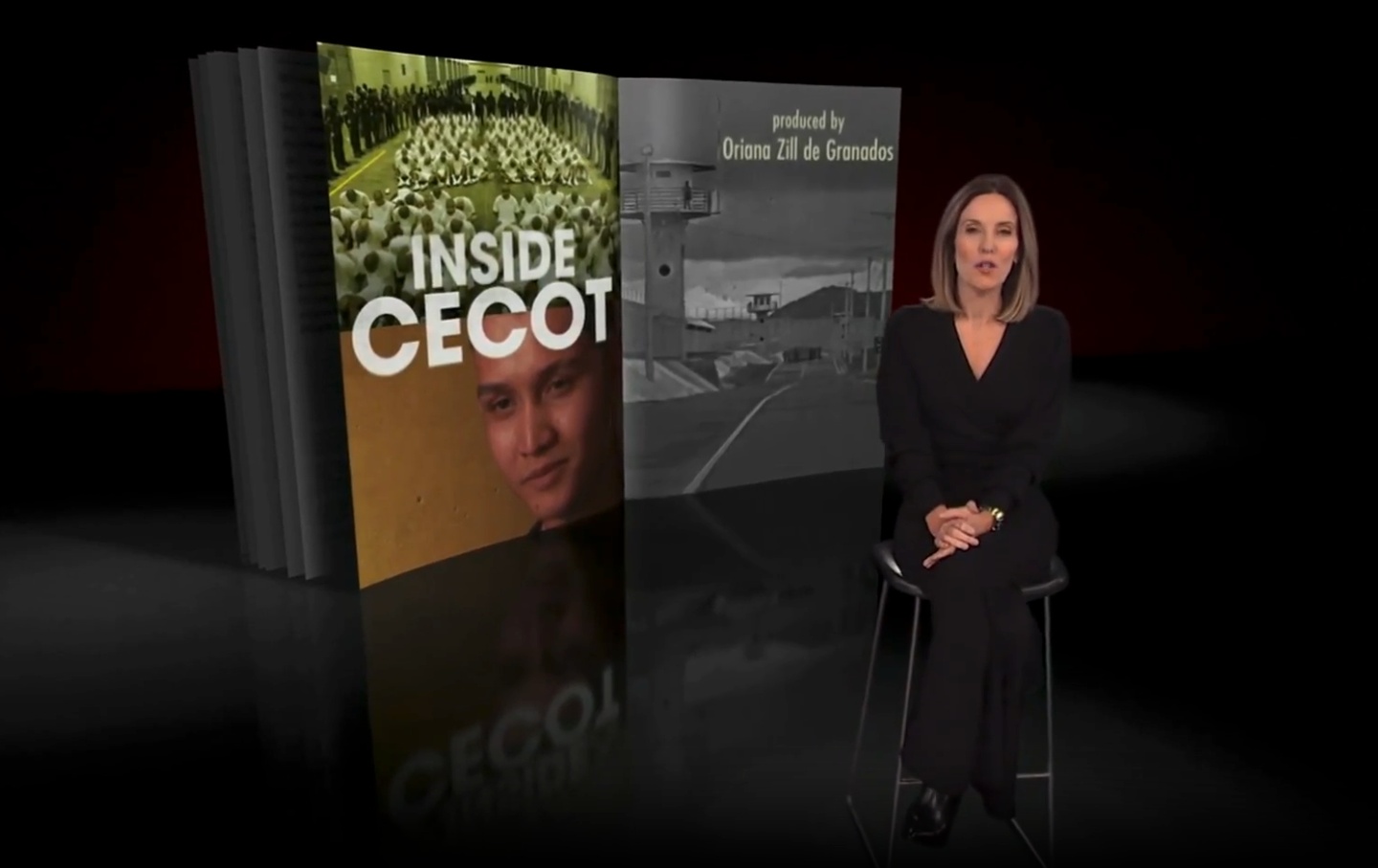
Read the CBS Report Bari Weiss Doesn’t Want You to See Read the CBS Report Bari Weiss Doesn’t Want You to See
A transcript of the 60 Minutes segment on CECOT, the notorious prison in El Salvador.
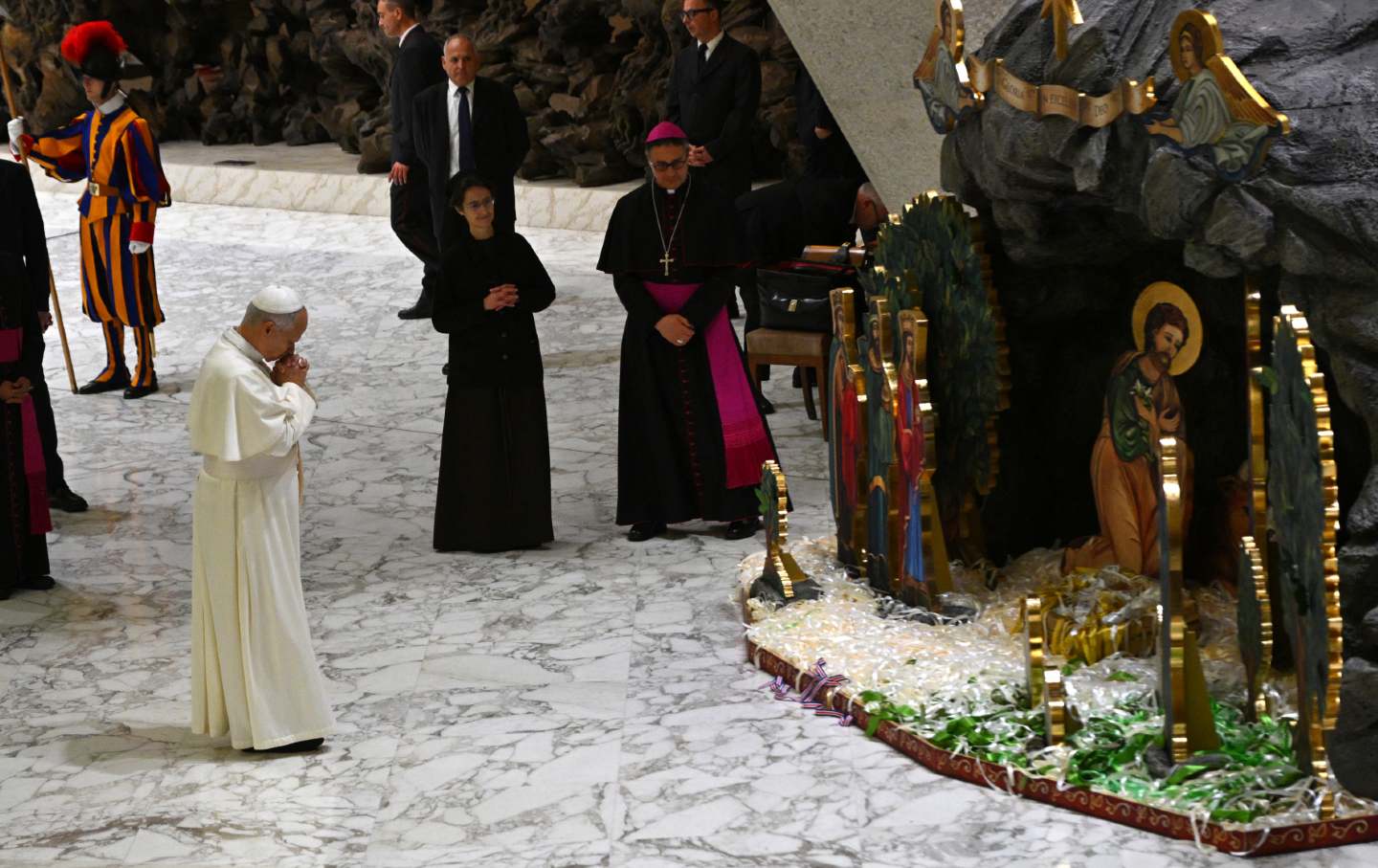
The Christmas Narrative Is About Charity and Love, Not Greed and Self-Dealing The Christmas Narrative Is About Charity and Love, Not Greed and Self-Dealing
John Fugelsang and Pope Leo XIV remind us that Christian nationalism and capitalism get in the way of the message of the season.

In Memoriam: Beautiful Writers, Influential Editors, Committed Activists In Memoriam: Beautiful Writers, Influential Editors, Committed Activists
A tribute to Nation family we lost this year—from Jules Feiffer to Joshua Clover, Elizabeth Pochoda, Bill Moyers, and Peter and Cora Weiss
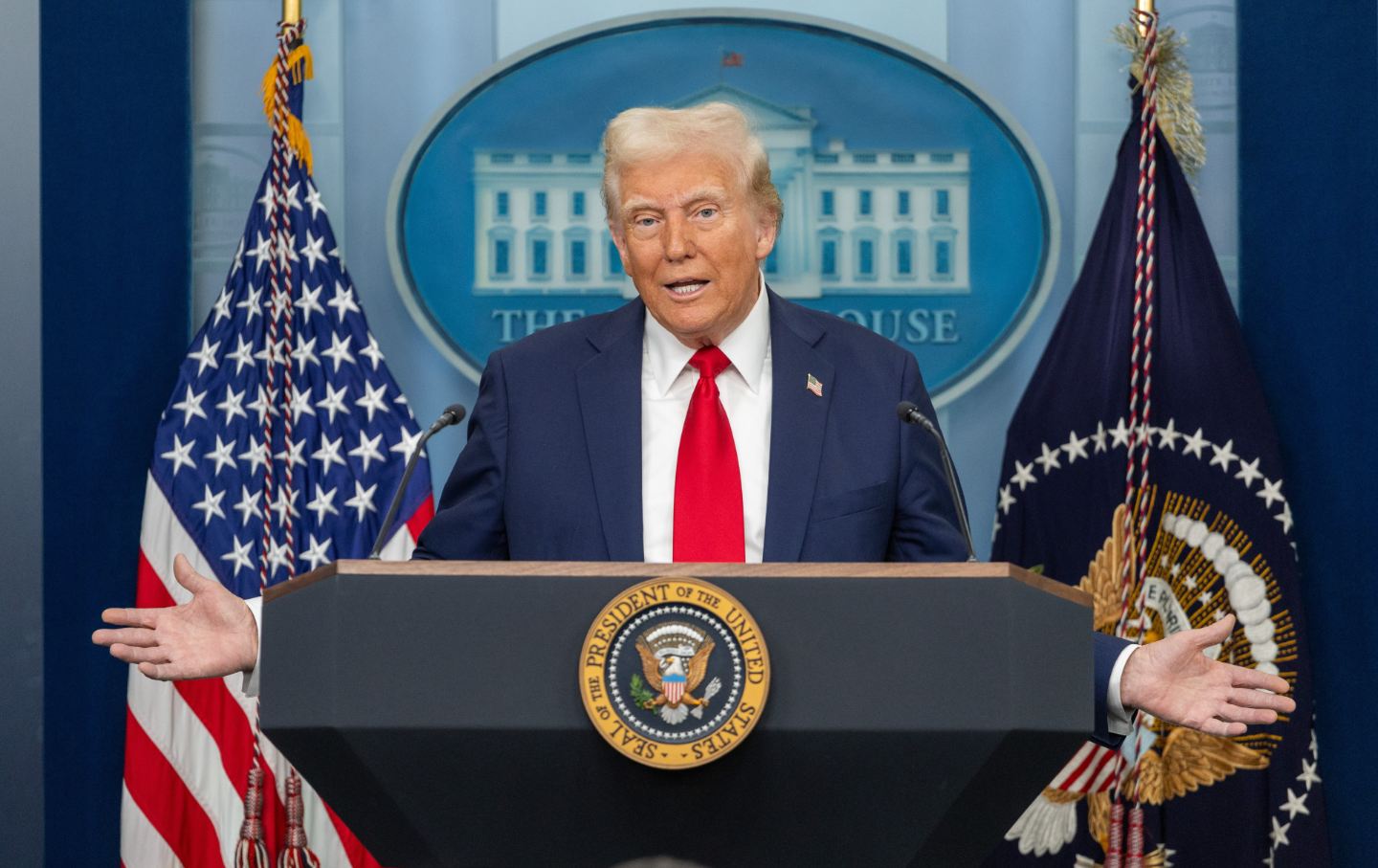
Trump’s Anti-DEI Crusade Is Going to Hit White Men, Too Trump’s Anti-DEI Crusade Is Going to Hit White Men, Too
Under the Trump administration’s anti-DEI directives, colleges would be forced to abandon gender balancing, disadvantaging men.

Why We Need Kin: A Conversation With Sophie Lucido Johnson Why We Need Kin: A Conversation With Sophie Lucido Johnson
The author and cartoonist explains why we should dismantle the nuclear family and build something bigger.
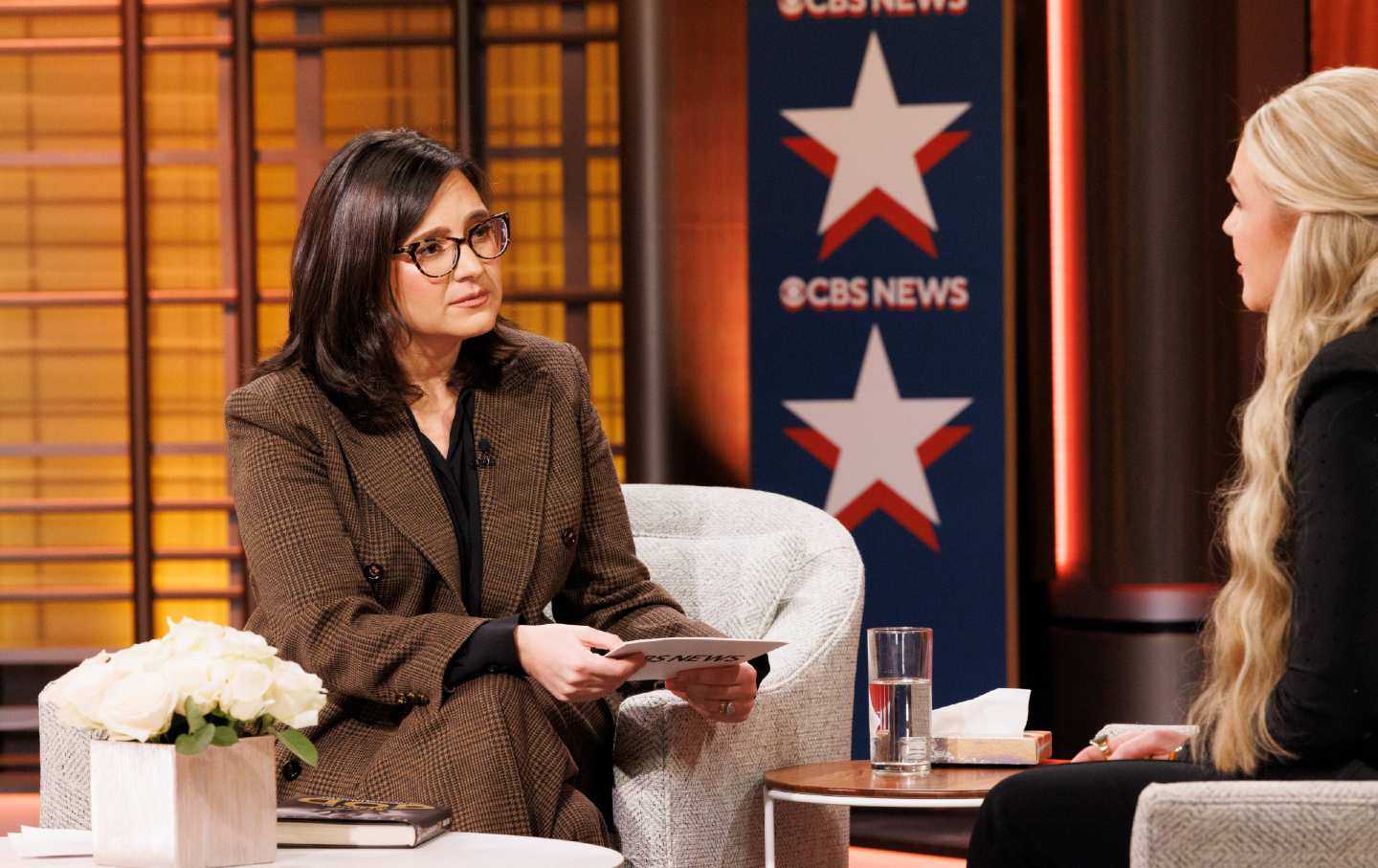
Bari Weiss’s Counter-Journalistic Crusade Targets “60 Minutes” Bari Weiss’s Counter-Journalistic Crusade Targets “60 Minutes”
The new editor in chief at CBS News has shown she’s not merely stupendously unqualified—she’s ideologically opposed to the practice of good journalism.


